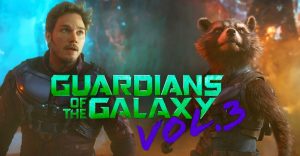How Spider-Man: No Way Home Could Change Hollywood Forever

Warning: this article contains SPOILERS for Spider-Man: No Way Home!
Marvel Studios and Sony’s latest collaboration, Spider-Man: No Way Home, marked an unprecedented event in cinema history, one that could have reverberating effects across the entirety of Hollywood in the years to come. No Way Home took Marvel and Sony’s partnership to the next level after Sony decided to share not only Tom Holland’s Spider-Man but all of their previous Spider-Man franchises with Marvel. The third MCU Spider-Man film starred Tom Holland as Peter Parker, while also bringing back Toby Maguire and Andrew Garfield’s versions of the character and their respective villains, in a multiverse-infused plot. Sony’s latest solo venture into the world of Spider-Man, the Venom franchise, was also represented in the film by a cameo from Tom Hardy’s Eddie Brock.
The inclusion of all these characters from past Spider-Man franchises indicates that Sony is willing to ignore character film rights and legal complications in favor of fulfilling their audience’s demands. Complications with Marvel’s character film rights have been detrimental to the MCU and the comic book genre as a whole, as it prevented Marvel Studios from accurately adapting tentpole comic events that featured characters from every corner of the Marvel comic universe. Even Spider-Man, by far Marvel’s most popular character, was not confirmed to join the MCU until 2015. However, Disney’s historic Fox acquisition and Sony’s willingness to share their IP adds hundreds of characters to Marvel’s sandbox, resolving a significant portion of the character rights issue.
Sony’s decision to disregard IP ownership rights to share characters from four different franchises with Marvel Studios was an unexpected yet welcome move. No Way Home was a breath of fresh air in the comic book movie genre, since it looked and felt like a comic book come to life, similar to the feeling Avengers: Endgame left audiences with. This cinematic feat was only possible because Sony and Marvel Studios elected to ignore IP exclusivity in favor of what was best for the narrative, and what their audiences wanted to see. Not only was No Way Home a great comic book movie by all metrics, but it also opened the door for future collaborations between movie studios, especially those still holding rights to Marvel characters.

Tom Holland’s third solo outing as the beloved web-head is a narrative, critical, and Box Office success. The film introduced audiences to the concept of the multiverse in the best way possible by featuring the familiar faces of previous Spider-Men, and the MCU will continue to explore the multiverse in the upcoming Doctor Strange In The Multiverse Of Madness. Critically, No Way Home’s reviews are setting new records; it is the highest-rated Spider-Man movie ever with a 94% aggregate on Rotten Tomatoes, and the second-highest in the MCU, second to 2018’s Black Panther. The movie also went on to shatter previous Box Office records, amassing the highest number of pre-sold tickets in history, and claiming the second-highest opening weekend of all time.
No Way Home effortlessly swinging through records is an example for other film studios. As far as Marvel characters are concerned, Universal still holds the rights to Hulk and Namor the Submariner, two of Marvel’s biggest names, which means that Marvel cannot produce solo films for these characters. Namor is rumored to play a role in the upcoming Black Panther: Wakanda Forever, and while Hulk has played a huge role in the MCU, he has not received a solo film since 2008’s The Incredible Hulk. However, recent reports have claimed that a new solo Hulk outing is in the works, based on the fan-favorite World War Hulk storyline; whether No Way Home motivated Universal to greenlight this film or not remains unclear.
No Way Home marked a cinematic milestone when it comes to IP sharing between studios. The financial success of No Way Home is bound to have a ripple effect on the way comic book films are made; not just by Marvel Studios, but by most other major studios as well. Thanks to Spider-Man: No Way Home, the sky is the limit when it comes to what fans can expect from the genre’s future, even the fabled Marvel vs. DC movie is now within the realm of possibility.
- Doctor Strange in the Multiverse of Madness (2022)Release date: May 06, 2022
- Thor: Love and Thunder (2022)Release date: Jul 08, 2022
- Black Panther: Wakanda Forever/Black Panther 2 (2022)Release date: Nov 11, 2022
- The Marvels/Captain Marvel 2 (2023)Release date: Feb 17, 2023
- Guardians of the Galaxy Vol. 3 (2023)Release date: May 05, 2023
- Ant-Man and the Wasp: Quantumania (2023)Release date: Jul 28, 2023

















